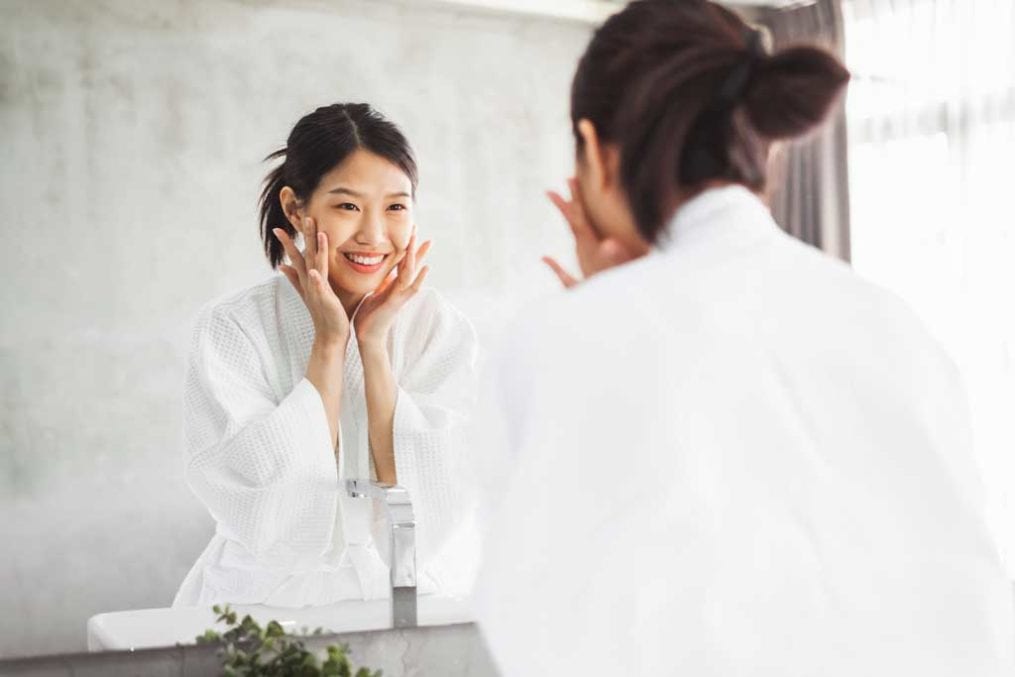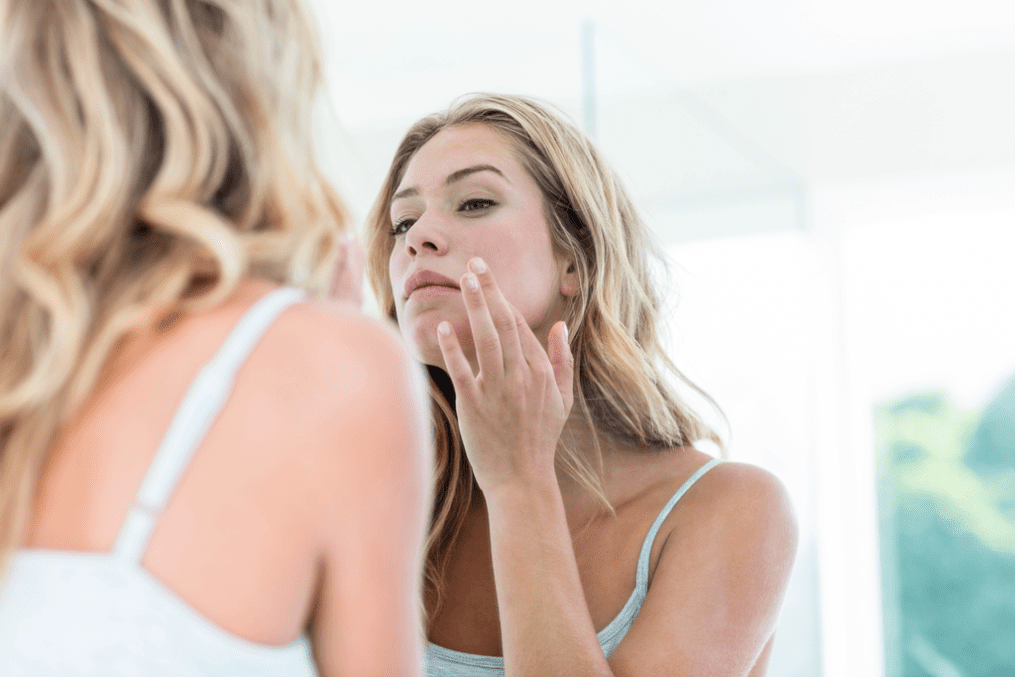How to treat adult acne

Those of us who’ve suffered with acne in our lives will know how frustrating it is when someone chips in with unsolicited advice about how we should wash our face more, eat healthier, or leave spots make-up free – if only it were that simple! The reality is that acne is a complex skin condition that varies from person to person and often needs specialist treatment from a dermatologist. But the good news is, these days, even serious cases can be dramatically improved with the right combination of treatments.
‘Several factors contribute to acne, but the main one is a genetic predisposition,’ says Dr Stefanie Williams, clinical dermatologist and medical director of European Dermatology London. ‘The wrong skincare and hormonal fluctuations (due to menstruation, coming off the pill and stress) can cause flare-ups, but only if you already have a genetic susceptibility.’ And if you’re wondering whether diet affecting your skin is a myth, ‘food can affect it,’ Williams explains, ‘but for most people it’s not as strong as often thought. Too much sugar or processed starchy foods can make existing acne worse, but someone without that genetic link could have a sinful diet and still have clear skin.’ Unfair, right?
How to treat acne
‘Acne is a skin disease, so don’t think of it as a cosmetic problem and try to get rid of it with semi-effective treatments, like salon peels or microdermabrasion,’ says Williams. ‘You’ll need prescription creams and, in severe cases, prescription tablets along with dermatology grade facials.’
Acne creams come in two groups: antibiotics to fight acne bacteria, and pore-unplugging creams, such as vitamin A derivatives (a clogged pore is the first step to spot forming). ‘Ideally, a combination of both works best,’ says Williams. ‘If creams aren’t enough, you might have to take an oral antibiotic and, if that’s not working, we might prescribe vitamin A tablets (isotretinoin), which are known to switch off acne for good in most people.
It’s worth noting that there are possible side effects with isotretinoin tablets – the most common being dry skin, lips and eyes – but a dermatologist can advise you on how best to manage them. However, you shouldn’t take the tablets while you’re pregnant, and shouldn’t get pregnant for a month after finishing them, as they pose a serious risk to the foetus. For that reason, dermatologists carry out regular pregnancy tests before issuing prescriptions.
How to get rid of acne scars
For those self-conscious about the scars leftover from acne, there are procedures that can help. ‘Aesthetic treatments such as micro-needling (which kicks skin into repair mode, boosting collagen production and skin regeneration) are effective,’ says Williams. However, remember that while micro-needling can reduce the appearance of scars, it’s unlikely to eradicate them completely. ‘For ice-pick scars, which are narrow and very deep, we can use TCA cross [chemical reduction of scars] treatment,’ says Williams. ‘This is where trichloroacetic acid is put into individual scars using a toothpick.’
How to look after your skin at home
Don’t overload skin with products, use moisturisers, sun protection and make-up that’s oil free. ‘Cleansers should be non-creamy, non-oily foaming formulas – ones containing salicylic acid, glycolic acid and retinol will also exfoliate skin and help to prevent clogged pores,’ says Williams. In addition to that, avoiding too much sugar in your diet can help keep flare-ups at bay.







